Why uPVC Suits Best For The Indian Scenario
May 24, 2016 By Fenesta
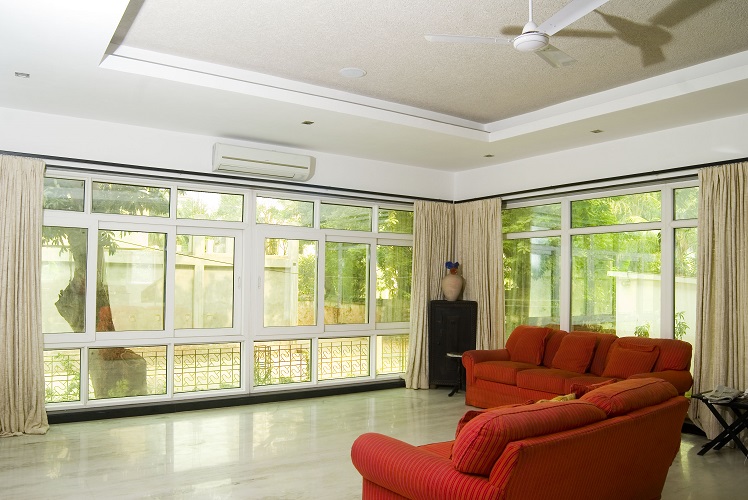
UPVC (Unplasticized Polyvinyl Chloride) is a rigid PVC; that is PVC minus the added plasticizers. It is used in residential and commercial properties as a replacement for wood in fenestration due to its higher durability. Adopted globally for its advantages over materials such as wood and aluminum, today, around half the windows and doors in US and Europe are made of UPVC. Following are the key reasons why UPVC is also best suited for Indian homes and commercial spaces: Provides Optimal Insulation 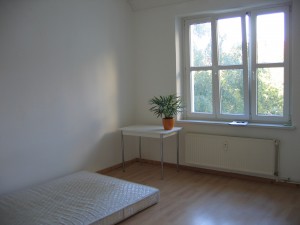 Glaze Insulation for Heat UPVC is a natural insulator, and hence it does not transfer heat indoors or outdoors. Due to its airtight design, your house remains insulated in all seasons. This property also protects your home from dust. Windows and doors made from UPVC are perfectly suited for tropical and cold climates. The insulation is extended to sound as well. Due to the airtight seal, any external noise is blocked. In addition to residences, this is essentially important for hospitals, hotels, and educational institutions that are sensitive to noise pollution familiar to Indian surroundings. Durable and Has Long Lifespan
Glaze Insulation for Heat UPVC is a natural insulator, and hence it does not transfer heat indoors or outdoors. Due to its airtight design, your house remains insulated in all seasons. This property also protects your home from dust. Windows and doors made from UPVC are perfectly suited for tropical and cold climates. The insulation is extended to sound as well. Due to the airtight seal, any external noise is blocked. In addition to residences, this is essentially important for hospitals, hotels, and educational institutions that are sensitive to noise pollution familiar to Indian surroundings. Durable and Has Long Lifespan 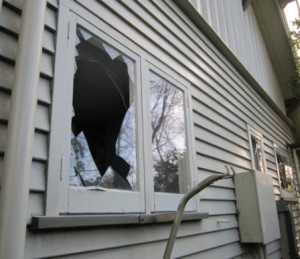 Compared to wood and aluminum, UPVC is extremely durable. They do not rust, corrode or swell. They are also termite proof, and heat, weather and age resistant. Hence, they have a longer lifespan. Easy to Maintain
Compared to wood and aluminum, UPVC is extremely durable. They do not rust, corrode or swell. They are also termite proof, and heat, weather and age resistant. Hence, they have a longer lifespan. Easy to Maintain 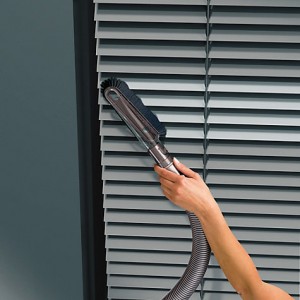 Since UPVC is sturdy, UPVC windows and doors require low maintenance. The color and condition stays new years after, meaning negligible overheads for repair of wear and tear. Additionally, it is easy to clean UPVC surfaces using mild commercial cleansing agents, as they are chemical resistant. Easy to Install
Since UPVC is sturdy, UPVC windows and doors require low maintenance. The color and condition stays new years after, meaning negligible overheads for repair of wear and tear. Additionally, it is easy to clean UPVC surfaces using mild commercial cleansing agents, as they are chemical resistant. Easy to Install 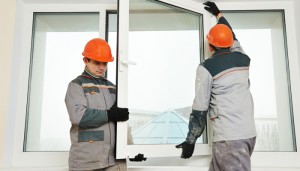 UPVC is easy to install than other materials. They can be drilled, nailed and sawed according to requirements. Security
UPVC is easy to install than other materials. They can be drilled, nailed and sawed according to requirements. Security 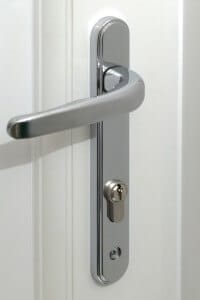 Safer and Stronger Locks UPVC windows where grills or metal reinforcements can be retrofitted to the sill or within the frame itself for security are now available. The doors and windows have complex multi-lock system that ensures higher security for your home. Double glaze or toughened glass options are also available in the market to prevent burglary. Environment Friendly
Safer and Stronger Locks UPVC windows where grills or metal reinforcements can be retrofitted to the sill or within the frame itself for security are now available. The doors and windows have complex multi-lock system that ensures higher security for your home. Double glaze or toughened glass options are also available in the market to prevent burglary. Environment Friendly 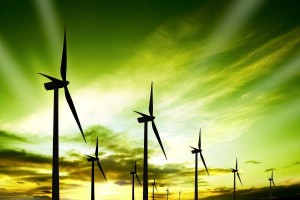 UPVC is sustainable and environment friendly compared to wood fixtures. They are recyclable hence minimize environment damage. UPVC, due to its airtight system, saves energy through reduced use of heater and air conditioner. It is known to save energy by 25-30%. When used in large complexes and cities, this can drastically lower the total electricity consumption. Weather Resistant
UPVC is sustainable and environment friendly compared to wood fixtures. They are recyclable hence minimize environment damage. UPVC, due to its airtight system, saves energy through reduced use of heater and air conditioner. It is known to save energy by 25-30%. When used in large complexes and cities, this can drastically lower the total electricity consumption. Weather Resistant 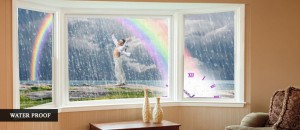 UPVC has better tolerance to sunlight and therefore, it is less susceptible to discoloration and corrosion compared to conventional building materials. It is ideal to battle Indian monsoons and is highly suited for buildings in coastal regions. UPVCs airtight technology locks water out, preventing seepage and humidity. Cost Effective The total cost of installation of UPVC is lower than traditional materials. Due to its durability and low maintenance, it is cost effective and economical in the long run. Has High Aesthetics Doors and windows made from UPVC are flexible. It is easy to create any form as per architectural requirement. Various styles can be adopted to imitate certain textures. They are also available in attractive colors as well as wood designs. The various attributes of UPVC makes it suitable for the Indian market. Higher penetration of UPVC in India will ensure better solution to architectural problems faced by residential and commercial users
UPVC has better tolerance to sunlight and therefore, it is less susceptible to discoloration and corrosion compared to conventional building materials. It is ideal to battle Indian monsoons and is highly suited for buildings in coastal regions. UPVCs airtight technology locks water out, preventing seepage and humidity. Cost Effective The total cost of installation of UPVC is lower than traditional materials. Due to its durability and low maintenance, it is cost effective and economical in the long run. Has High Aesthetics Doors and windows made from UPVC are flexible. It is easy to create any form as per architectural requirement. Various styles can be adopted to imitate certain textures. They are also available in attractive colors as well as wood designs. The various attributes of UPVC makes it suitable for the Indian market. Higher penetration of UPVC in India will ensure better solution to architectural problems faced by residential and commercial users










Comments